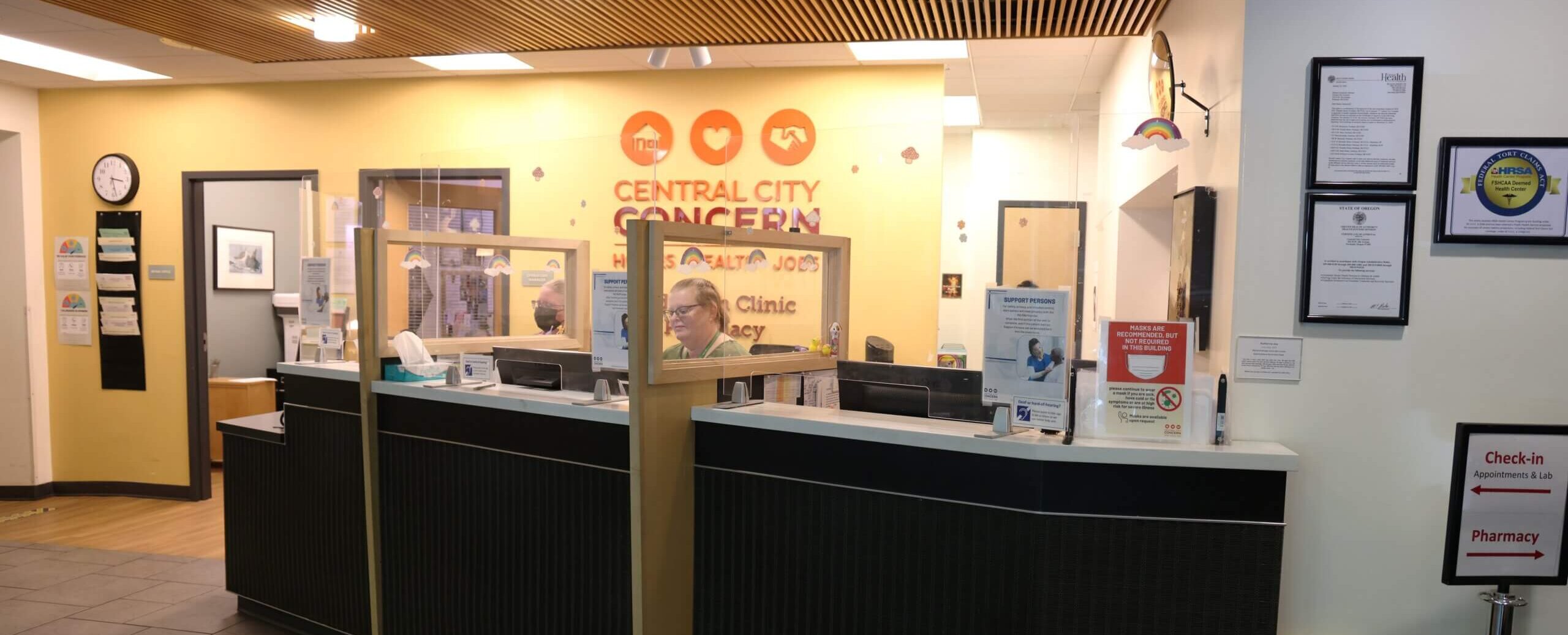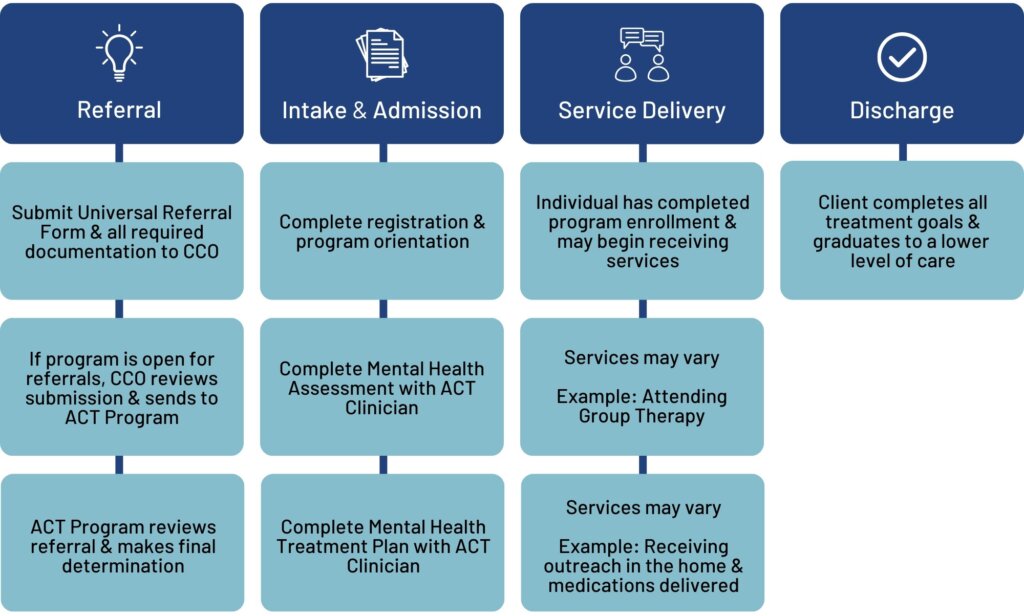Treatment Philosophy
The CORE team uses many skills and specialties of the multidisciplinary team to provide intensive, wraparound services that address all aspects of a client’s life.
The team supports a client in multiple areas, including peer support, substance use treatment, employment, nursing, mental health counseling, and psychiatric services.
The goal of ACT CORE services is to increase independence and stability in the community, improve quality of life, and пrovide high-intensity services to individuals in a community-based setting.




